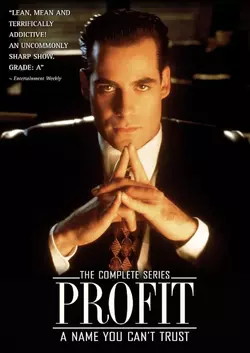Ventrue
kiwifarms.net
- Joined
- Oct 31, 2023

"The line most people say they won't cross - it's usually something they've already done when they thought no one was watching."
Profit was a TV show from 1996. Its about a man who is not above using blackmail, bribery, extortion, or worse to reach the top of the corporate ladder, by covertly engineering the ruin of those who stand in his way and/or refuse to assist him, while mostly operating behind the scenes himself.
The co-creator David Greenwalt from Profit who later went on to produce the Buffy the Vampire Slayer spin-off Angel, had the idea of having Adrian Pasdar reprise his role as Jim Profit on Angel. The main villains in Angel were a law firm called Wolfram & Hart, and Profit would have joined the firm. Conflicting working schedules with Pasdar and the difficulties in securing the rights to use the Jim Profit character prevented this from happening before Angel's final season.
All of the 8 episodes are on YouTube.
